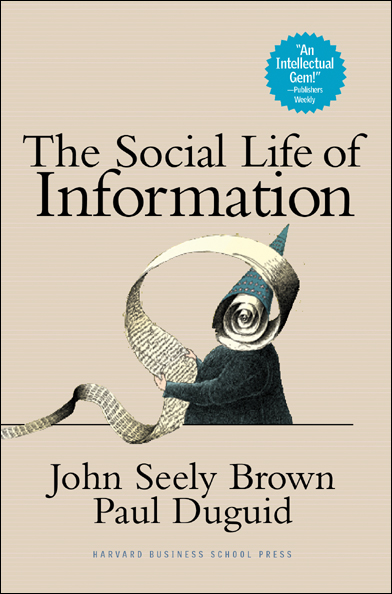The very concept of in-formation has implications that suggest an input / output model of human beings.
Many explain their mistakes away by simply noting that they just didn't know, they just didn't have enough information. Problems are often tracked to failure of information systems where the real problem is denial, a lack of most rudimentary understanding of the common principles governing human existence.
There is a distinction between not knowing and not having enough information.
Knowing is about knowledge. It can be gained by education ("to draw / bring out / lead out / rear from within"). As John Dewey, the noted American philosopher of education, has argued, we gain knowledge by acting within the real context of our civilization and culture. Knowledge can also be gained by meditation and revelations of particular kind. Some have even spoken of sacred knowledge or knowledge of the sacred but rarely have I seen anyone speak of sacred data although I've observed many speaking of data, whether "scientific" or otherwise, as if it was sacred.
In contrast with knowledge, in-formation is about data. Data has nothing to do with us, is outside of us, and our involvement with it is of secondary concern. It is the odd among us who like to be a fragment of data in someone's book. No soldier (in fact, no one) wants to be a "++" on a bodycount variable. Life proves they are not.
 |
|
 |
|
What matters includes reality that goes well beyond in-formation and information processing.
For example, as Mencius, the great Chinese philosopher and a student of Confucius' grandson taught his audience, "things of the same kind are alike" including human emotions. We can learn much more about reality and the effect of our actions on others by simply trying to put ourselves in others' shoes. Given the Mencian observation regarding the commonality of human emotions, it is no surprise that those who want to obscure their ability to experience the emotions of the other, begin by vilifying (and, yes, ridiculing) the other. [This talk about commonality of emotions reminds me of something else: The education of emotions is the most important type of education any human being can receive.]
On the other hand, as John Seely Brown and Paul Duguid have noted, information worship only helps drive a distance between the real (including the social context of our actions) and us.
Storage does not correlate with significance, nor volume with value. Standing atop gigabytes, terabytes, and even exabytes of information will not necessarily help us see further. It may only put our heads further into the clouds. . . . Indeed, mankind, as Samuel Johnson presciently noted, needs more often to be reminded than informed. If we keep looking down the same tunnel, we are likely to keep encountering the same problems. To avoid them . . . we all need to get outside the information tunnel, look around, and appreciate the social life that lies beyond and makes it possible.
So, are the stuff in our databases the Pyramids (Al-Ahram) of our time? Will they survive as long as the Pyramids have?

No comments:
Post a Comment